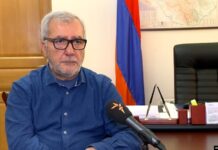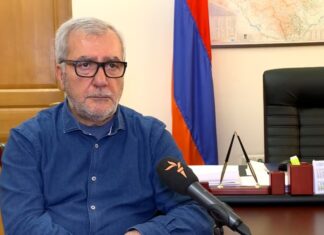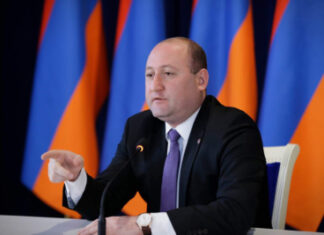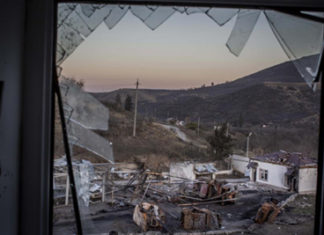By Vahan Zanoyan
The resources of the entire Armenian nation are required to pull Armenia out of the severe crisis created by the defeat in the 44-day war. In fact, it is not difficult to imagine that had the resources of the entire Armenian nation been engaged in the governance of the country in the past 25-30 years, the outcome of that war might have been different, not to mention the distinct possibility that the war may have been avoided altogether. But this commentary will not speculate on how things might have tuned out had we managed the past differently. Let us focus instead on the future.
75-80 percent of the resources of the Armenian nation reside in the Diaspora. This is true by any measure of the term “resources,” including number of people, education levels, professional qualifications, financial resources, experience in management and administration, competency in science, medicine and technology, global connections, experience in military and strategic affairs and in intelligence operations. And by “Diaspora” we should not understand only ethnic Armenians living outside Armenia with little or no connection to Armenia. This talent resides among: 1) citizens of the Republic of Armenia (RA) who migrated and acquired foreign citizenship and currently reside abroad, while maintaining their Armenian citizenship; 2) citizens of the RA who migrated and acquired foreign citizenship and returned to reside in Armenia, while maintaining both their foreign and Armenian citizenship, 3) ethnic Armenian citizens of foreign countries who acquired their Armenian citizenship since independence, and divide their time between Armenia and abroad, and 4) ethnic Armenian citizens of foreign countries who have not yet acquired citizenship of the RA, but are qualified to acquire it under the current laws of the RA.
This vast national resource is currently restricted, by Armenian law, from serving the Republic of Armenia in some key public posts. Articles 48, 148, 124, 165, 174 and 177 of the Constitution impose critical restrictions on who can be elected to the Parliament, serve in the government in a Ministerial capacity, serve as President, or serve in any high-level position in the judiciary. (See below for the relevant paragraphs of these articles). Specifically, 1) No one can be elected to Parliament unless he or she has held citizenship of only the RA, and has permanently resided in Armenia, for the preceding four years (Article 48, Point 2); 2) No one can serve in the government in any Ministerial capacity unless he or she has held citizenship of only the RA, and has permanently resided in Armenia, for the preceding four years (Article 148, Points 1 and 2); 3) No one can serve as president unless he or she has held citizenship of only the RA, and has permanently resided in Armenia, for the preceding six years (Article 124, Point 2; 4) No one can serve as a judge, regardless of his or her qualifications, in the Constitutional Court, Court of Cassation and Court of Appeals of the RA, unless he or she holds citizenship of only the RA (Article 165, Parts 1, 2 and 3); 5) No one can serve on the Supreme Judicial Council, regardless of his or her qualifications, unless he or she holds citizenship of only the RA (Article 174, Part 3), and 6) No one can serve as Prosecutor General, regardless of his or her qualifications, unless he or she holds citizenship of only in the RA (Article 177, Point 2).
There is no compelling national interest to be served by these restrictions, especially given the unique circumstances of Armenia and the Armenian nation. While maintaining the key precondition that it should be the citizens of the RA who choose their representatives and their government, the following modification to the Constitution would serve the country and the nation well: From all six articles, remove the restriction of citizenship of “only” the RA and, where applicable, residency in Armenia in the “preceding four (and six) years.”
Thus, the conditions for all these positions, as they relate to citizenship and residency would become: 1) citizenship of the RA and 2) permanent residency in Armenia while in office. All other requirements for qualifications and experience, especially for judges, would remain.









